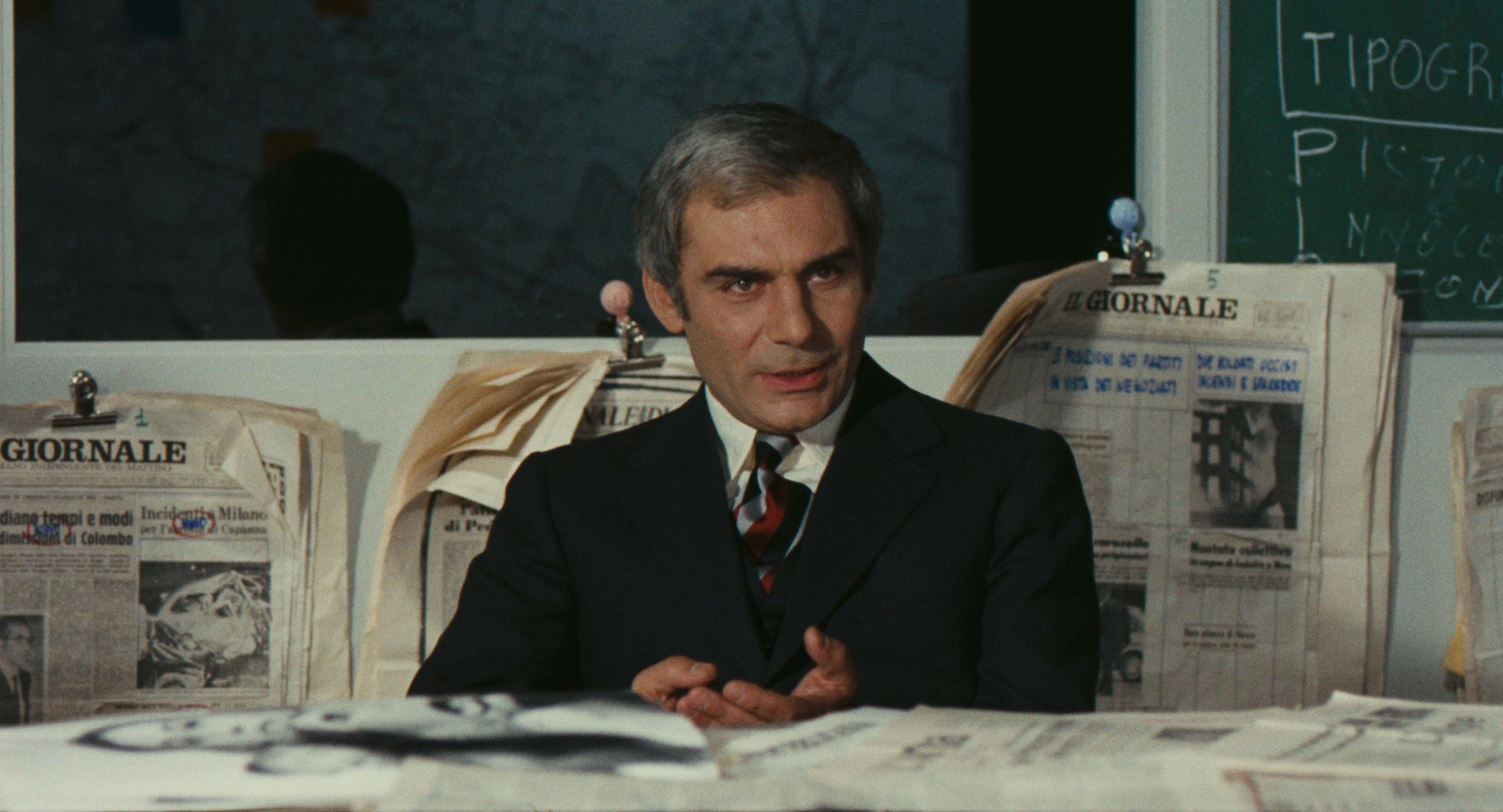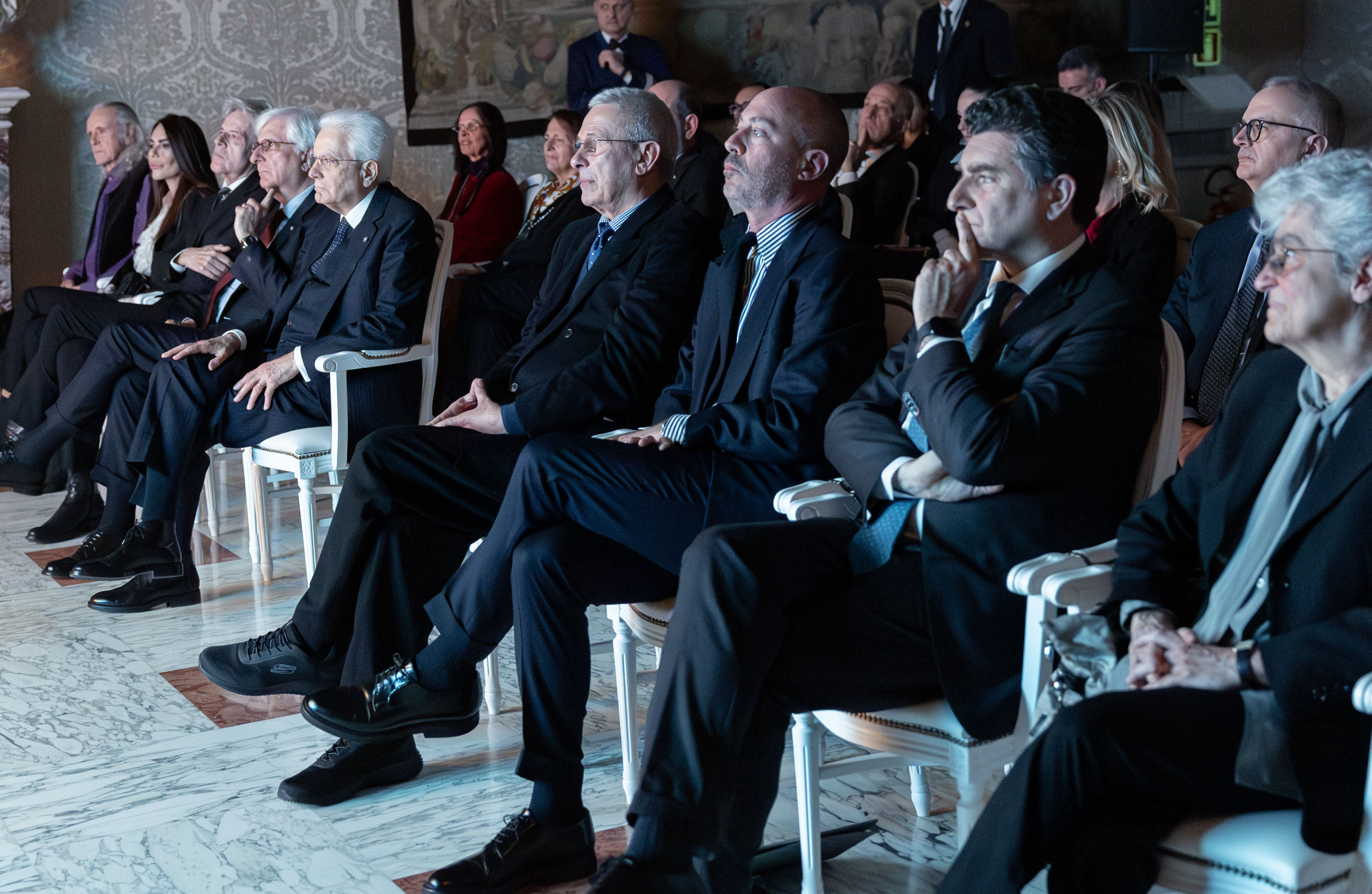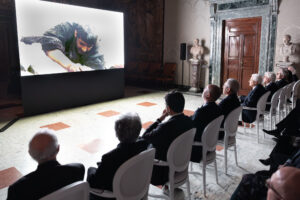Marco Bellocchio’s “Slap the Monster on Page One” Returns to Theaters in Restored 4K Version!
13 June 2024
We are excited to announce the return to cinemas of Slap the Monster on Page One (1972), directed by Marco Bellocchio and starring Gian Maria Volonté, in a 4K restoration by the Cineteca di Bologna. Recently presented at the 2024 Cannes Film Festival in the Cannes Classics section, the film received applause and a standing ovation. It will be shown in cinemas starting July 4th by 01 Distribution in collaboration with Minerva Pictures and will be available for a preview on June 27th at the Cinema Ritrovato in Bologna.
This version was restored in 4K by the Cineteca di Bologna, in collaboration with Surf Film, Kavac Film, and Minerva Pictures, under the supervision of Bellocchio himself; the original film and sound negatives were digitized by Augustus Color and restored at the L’Immagine Ritrovata laboratory.
Featuring Gian Maria Volonté in the role of chief editor Giancarlo Bizanti, Slap the Monster on Page One “tells a story that crosses a series of real events,” wrote Gian Piero Brunetta in his History of Italian Cinema, “that shook the country’s conscience in those years. From references to the first terrorist episodes, like the bombs at the Milan Trade Fair of 1969, to black chronicle events (the death of Milena Sutter), to episodes of urban guerrilla warfare or traumatic events such as the Piazza Fontana massacre, the death of the anarchist Pinelli, or that of publisher Giangiacomo Feltrinelli.” The film, Brunetta continues, “has the ability to convey a sense of social tension, rising ideological temperature, and a blind and ruthless fight among various organized, institutional, and spontaneous forces.”
Alberto Moravia summarized the plot of the film in L’Espresso: “A newspaper enjoys a reputation as an objective, impartial, independent, enlightened organ of information. Nevertheless, or perhaps for this very reason, it is a mendacious façade behind which hides an owner who fully aware defends the interests of power groups and a cynical director ready for all compromises. It happens that just on the eve of elections, the opposition attacks the financial groups that use the newspaper. Alarmed, the owner calls Bizanti, the director, and asks him to divert the public’s attention from the real track represented by the newspaper’s financiers, towards the false track of some apolitical news event. Precisely, in those days, a young girl, Maria Grazia Martini, was found raped and strangled in a meadow on the outskirts. An anonymous letter sent to the newspaper promises information about the killer. Bizanti wastes no time and eagerly creates the diversion of the monster. Bizanti is lucky. He frames the author of the letter, a jealous poor woman, and extracts from her the name of the alleged assassin, a protest movement boy. Bizanti had not hoped for so much: here is the monster and, moreover, politically positioned on the left. At this point, however, a young editor, Roveda, does not feel like following the director in his imaginative reconstructions.”
Goffredo Fofi, co-screenwriter of the film along with Sergio Donati, collected in his Il cinema italiano d’oggi (1984) the testimony of Marco Bellocchio: “The making of ‘Slap the Monster on the Front Page’ had started with Sergio Donati as screenwriter and director. By mutual agreement, he and the producer had judged that Donati was not yet able to take on directing, so Franco Committeri set out to find someone to take over the film. I accepted because I was interested in an experience of this kind; to jump on a moving train, to see what could be done as strictly professional work, and also to transform the film, which was a thriller about the world of Milanese journalism, into a politically edged film. I dragged Fofi along with me and together we very quickly rewrote the screenplay day by day, while shooting. The settings remained, almost all the actors remained, but new roles were added, including the fundamental one of Laura Betti, and the story became completely different.”
Goffredo Fofi himself recalled: “My model was Fritz Lang’s small American films. A quick story that showed the functioning of power within the mass media starting from a case of political manipulation that was modeled on that of Valpreda.“


